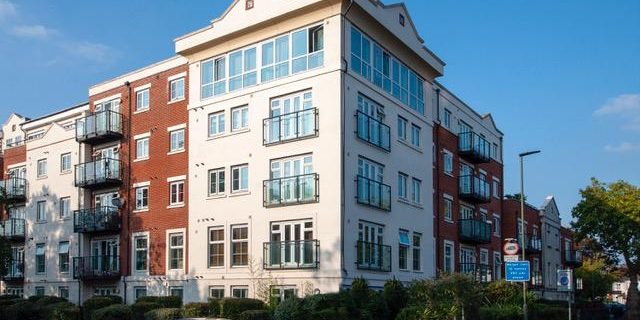Buying a flat (or maisonette!) is a bit more complicated than buying a house, for several reasons (which we will explain in this post!). There are things you need to consider when buying a flat, so it’s important to make sure you ask the correct questions when going to view a potential one.
Here are the questions that we find are asked again and again by people who are looking to buy a flat…
What’s the difference between a freehold and a leasehold property?
A freehold property is one where you actually own the home and the land on which it is built, as opposed to a leasehold property, where you buy the right to occupy the property, which sits upon land – or within a building – that belongs to someone else (the leaseholder). Flats are leasehold because you share a building with other people. The lease is the agreement between parties, which needs to be checked by a solicitor, making leaseholds more legally complicated (and a bit more costly) than freehold ones.
How do I know how long is left on the lease?
With a leasehold property, you essentially buy the right to live in that property for a set amount of time, which could be any amount up to 999 years! As time moves on and the lease changes hands, the value reduces, so it’s vital you know how long is left on the lease (your solicitor will check this for you). Mortgage lenders tend to insist that properties have at least 70 years left on their lease, so, if you buy one with less than 80 years of lease remaining, you may struggle to sell it in 5 to 10 years’ time. An extension can cost several thousand pounds and take many weeks to deal with, so, if the lease is running out, you should try to push to have it extended before you actually buy.
What about service charges?
You need to know how much ground rent and service charge you’ll pay to live in the property and who is responsible for general repairs of any communal areas, so you can budget.
Can I make any alterations to the property?
You need to find out if you’re free to make any alterations to the property, or if there are any restrictions. If so, what are they? These can range from the obvious (you can’t remove internal walls) to smaller ones, such as making sure you keep the same windows or front door. If you have any big plans for your new flat, check with your solicitor whether the lease allows for those changes. You might need to get written consent from the landlord first.
Who is responsible for major repairs?
Your service charges should include costs for general maintenance, but might not include costs for major repairs, such as if the roof of your block of flats needs replacing. If a large repair is needed, you should know who will be responsible and how any incurring costs will be shared.
What other costs might be involved?
Other costs can arise that can’t be predicted at the beginning of your purchase. For example, management companies can make extra charges for changing their records when a new person joins or leaves a property, and for administration fees to provide information you’ll need in order to get a mortgage. This can add a couple of hundred pounds on to the cost of your move, so it’s worth including in your budget.

